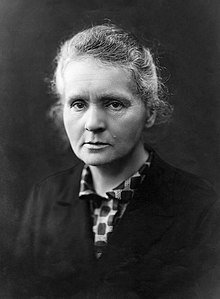Marie Curie: A Pioneer in Science and Equality

As March unfolds and Women’s History Month takes center stage, it’s essential to honor the remarkable women who have made significant contributions to society. Among these luminaries stands Marie Curie—a pioneering scientist whose groundbreaking discoveries revolutionized our understanding of the natural world and inspired generations of women to pursue careers in STEM fields. Let us delve into the extraordinary life of this trailblazing figure and the profound impact of her work.
Marie Curie, born Maria Skłodowska on November 7, 1867, in Warsaw, Poland, was a trailblazer from an early age. Despite facing adversity as a woman in the male-dominated field of science, Curie pursued her passion for knowledge with determination and perseverance. After moving to Paris to study at the Sorbonne, she met her future husband, Pierre Curie, and together they embarked on a scientific journey that would change the world.
In 1898, Marie Curie made history when she and Pierre discovered the elements polonium and radium, pioneering the field of radioactivity. Their groundbreaking research earned them the Nobel Prize in Physics in 1903, making Marie Curie the first woman to receive a Nobel Prize. She later went on to win a second Nobel Prize in Chemistry in 1911, becoming the first person—and still the only woman—to receive Nobel Prizes in two different scientific fields.
Despite her monumental achievements, Marie Curie faced considerable challenges and obstacles in her career. As a woman in science, she encountered sexism and discrimination from colleagues and the scientific establishment, who doubted her abilities and questioned her legitimacy. Yet, Curie remained undeterred, her passion for discovery driving her forward in the face of adversity.
Marie Curie’s groundbreaking discoveries not only revolutionized our understanding of the natural world but also paved the way for significant advances in medicine, industry, and technology. Her work laid the foundation for the development of radiation therapy for cancer treatment, as well as numerous other applications in fields ranging from energy production to materials science.
While Marie Curie’s research did not directly lead to changes in laws, her pioneering example helped to challenge societal norms and pave the way for greater recognition and opportunities for women in science. Her achievements inspired generations of women to pursue careers in STEM fields, breaking down barriers and expanding the boundaries of knowledge and possibility.
As we celebrate Women’s History Month, let us honor the enduring legacy of Marie Curie—a woman whose courage, intellect, and unwavering commitment to discovery continue to inspire us all. May her life serve as a reminder of the power of perseverance, the importance of diversity, and the enduring quest for knowledge and progress.
Sign up for Kristy's Newsletter!
Get all the updates on upcoming books and events!
